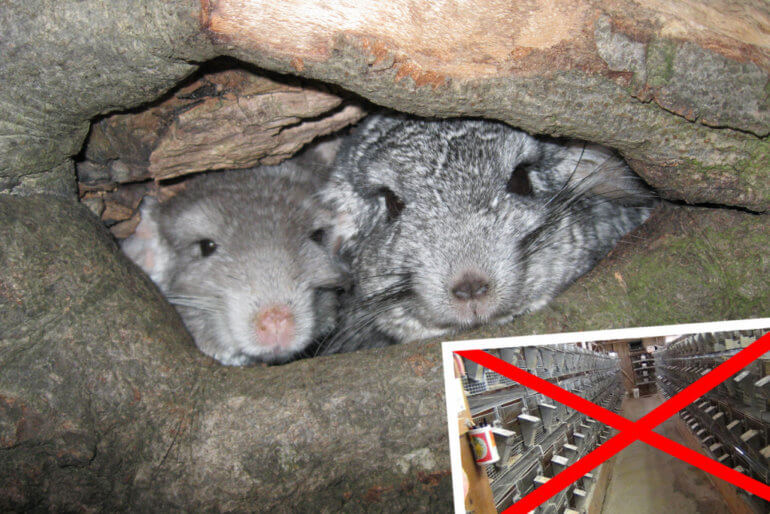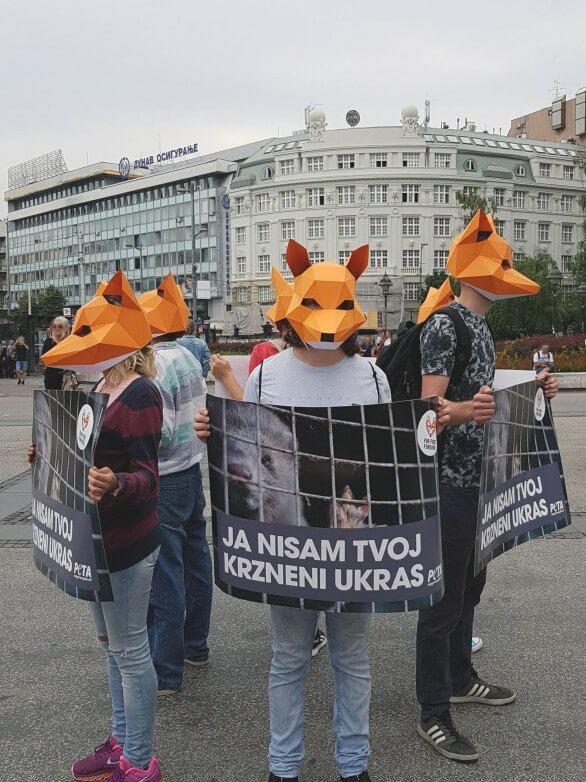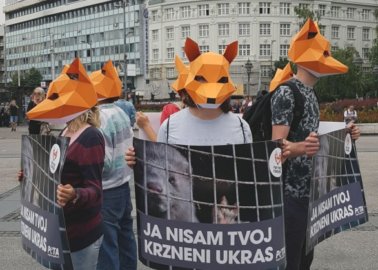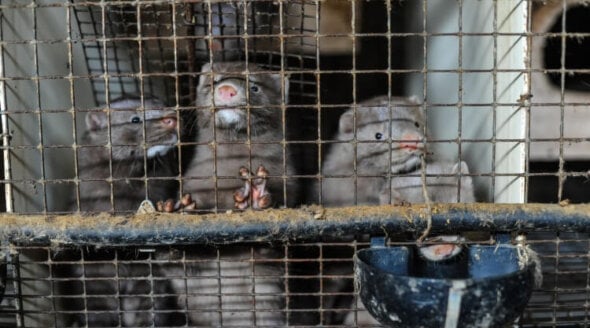Victory! New Serbia Fur-Farming Ban to Save up to 12,000 Chinchillas a Year
Following a decade-long delay, Serbia has finally introduced a total ban on fur farming. This means that each year, up to 12,000 chinchillas will be spared the horrors of being confined to filthy wire cages and killed for their skin.
 © PETA Germany & PETA US
© PETA Germany & PETA US
This huge news comes after years of determined campaigning by PETA Germany, which joined over 40 other animal-protection groups worldwide in campaigning to make sure the Serbian government followed through on its promise to implement a ban. After the country’s Animal Welfare Act, which outlawed fur farming, was first passed back in 2009, fur industry lobbyists tried to have it reversed. But after animal groups held multiple protests, attended meetings with members of parliament, and even launched a celebrity campaign, the government finally took action, and the ban has now officially come into force.
In 2016, Sharon Osbourne joined PETA US in exposing the cruel trade in chinchilla fur. Investigative footage revealed that on fur farms, these sensitive and intelligent animals are confined to tiny, dirty cages for their entire lives before either their necks are broken or they’re electrocuted. Deprived of the opportunity to do anything that’s natural to them – such as running, socialising, and foraging for food – they often become distressed, and infant mortality is common.
Serbia joins the growing list of countries that have now banned fur farming, which also includes Great Britain, Australia, Belgium, Bosnia and Herzegovina, Croatia, the Czech Republic, Japan, Luxembourg, Macedonia, Norway, and Slovenia.
What You Can Do
Fur farming has been banned in the UK for almost two decades but remains legal in Ireland, where up to 200,000 minks are gassed and skinned every year. Please ask the Irish Minister for Agriculture to put an end to this cruel industry by introducing a ban immediately.








